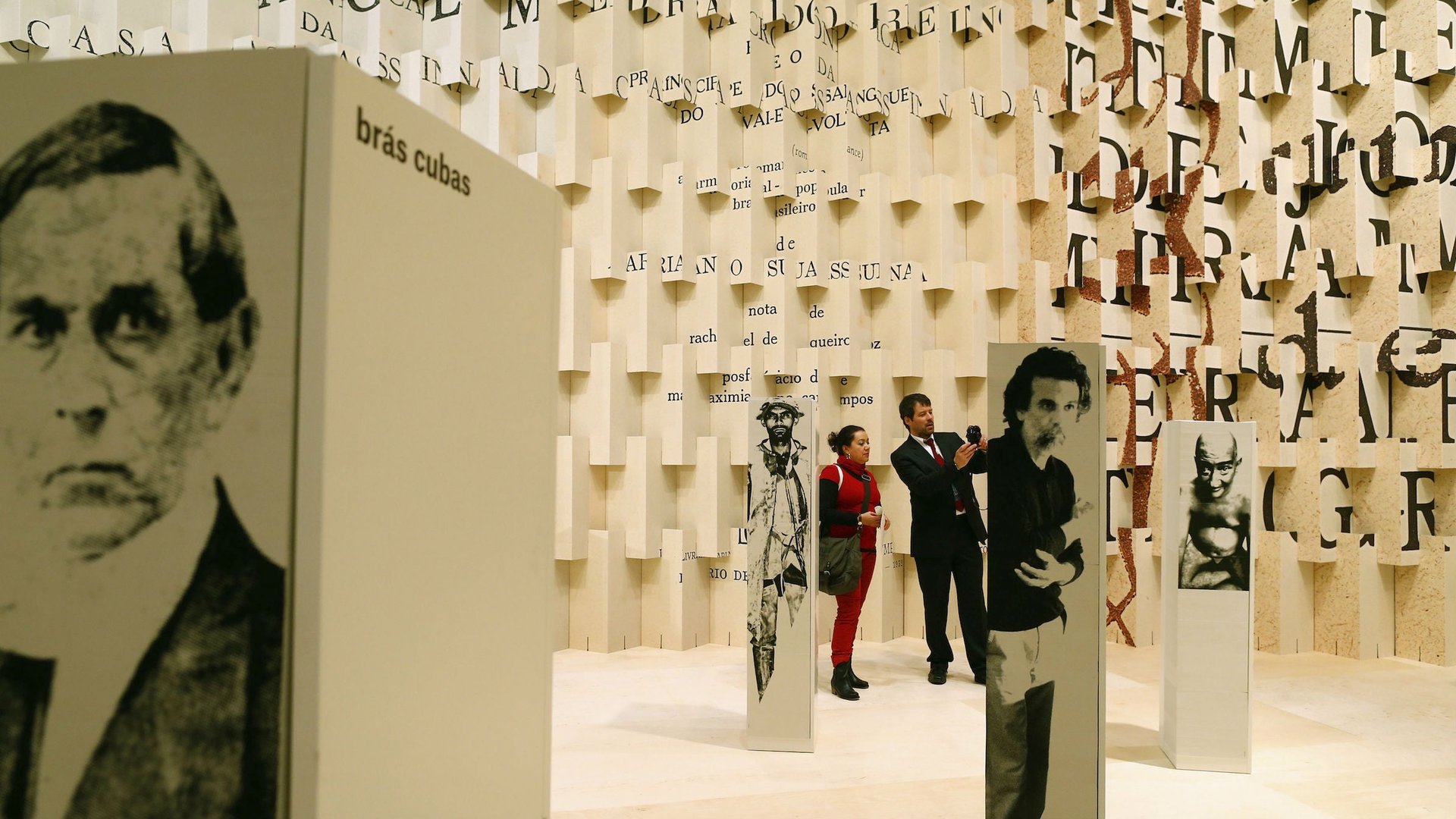Brazil’s next major export: literature
Troubled by high inflation and poor infrastructure, Brazil is looking to literature to boost its economy. Tomorrow, 70 Brazilian writers and over 100 publishers will descend on the world’s largest book fair when it opens in Frankfurt with Brazil as its guest of honor. There, they’ll promote the country’s literary wares in a 2,500 sq. meter pavilion (8,200 sq. feet.) via video installations and art.


Troubled by high inflation and poor infrastructure, Brazil is looking to literature to boost its economy. Tomorrow, 70 Brazilian writers and over 100 publishers will descend on the world’s largest book fair when it opens in Frankfurt with Brazil as its guest of honor. There, they’ll promote the country’s literary wares in a 2,500 sq. meter pavilion (8,200 sq. feet.) via video installations and art.
It’s all part of a plan by Brazil’s ministry of culture to pour money into promoting writers like the early modernist author Joaquim Maria Machado de Assis; Clarice Lispector, described by one biographer as the most important Jewish writer since Franz Kafka; and other contemporary young Brazilian novelists. Some $35 million will be invested in scholarships for authors , translators, exchange programs and participation in more book fairs over the next decade. In Frankfurt, Brazil is spending about $8 million on cultural programs for Frankfurt’s five-day fair alone.
How will those investments pay off? Cultural officials hope translated Brazilian titles will sell well in Germany and other major publishing markets. More broadly, “cultural industries” like publishing are believed to make modest contributions to GDP and employment. According to a study in 1998, the cultural sector, including publishing as well as media, contributed as much as 6.7% to Brazil’s GDP (p.7). (Another study in 1994 that restricted the industry to only artistic or creative output said it contributed 0.8%.)